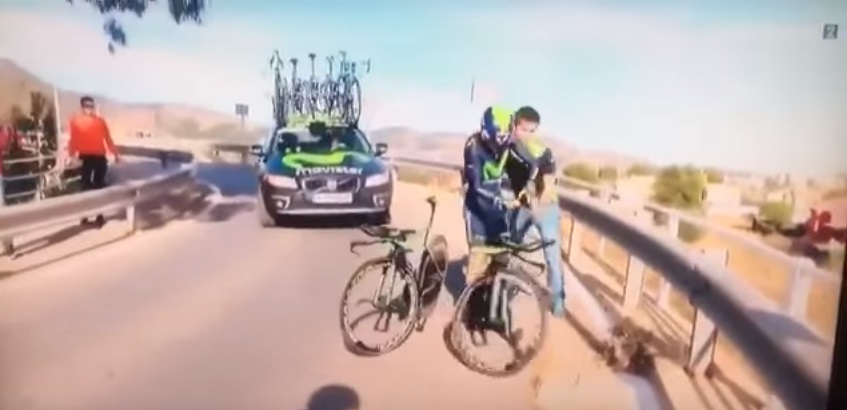A week of controversy to herald greater motor-doping scrutiny from UCI officials
If cycling observers weren't familiar with the term "technological fraud" before this week for some reason, they certainly are now.


If cycling observers weren’t familiar with the term “technological fraud” before this week for some reason, they certainly are now.
Of course, the other name for the offence, “motor-doping,” might be more recognizable to some. Going back to events like the Giro d’Italia of last year, riders in the pro peloton—including some Canadian competitors of note—were becoming familiar, perhaps uncomfortably, with the tests imposed by UCI officials in checking for such infractions. Bikes would be confiscated at the finish, swept into tents to be investigated part by part. And that investigation would be thorough.
At times, riders expressed dismay at the process. “It’s not possible,” said B.C.’s Ryder Hesjedal, subject to a random check at last year’s Giro. “It’s the stupidest thing.” His bike was carried off into a tent after finishing the Stage 18 climb, put under the proverbial microscope as officials searched for mechanical aids.
They didn’t find any.
But after the events of this week, which started when 19-year-old Belgian U23 rider Femke Van den Driessche became the first rider ever to be caught concealing a motor in her bike at the Heusden-Zolder cyclocross world championships, such probes aren’t likely to discontinue anytime soon. If the words of UCI chief Brian Cookson are any indication, spoken after the matter was first disclosed, Zolder’s events were, in fact, a prelude to a period wherein technological fraud will find itself under even greater scrutiny.
“We will be testing more bikes, more often,” Cookson said after the events in Zolder. “We want the minority who may consider cheating to know that, increasingly, there is no place to hide, and sooner or later they will pay for the damage they’re causing to our sport.”
https://www.youtube.com/watch?v=pD5YkqFGdwI
Then, just a matter of days after Cookson drew that line in the sand, Team Movistar found itself under some very public scrutiny, too. During the first stage of the Vuelta Valenciana, a 16 km individual time trial, rider Ion Izagirre crashed out on his Canyon bike. In the moments that followed, the front wheel remained still, but the back wheel, suspiciously, continued spinning until Izagirre stopped the movement by pushing it against the ground.
So where do the events of the last week leave the cycling world, with motor doping becoming more than just a matter of allegation?
It’s hard to say. But considering that the first of those incidents happened in Zolder, the fact that the eBike World Championships in April—an apparently non-UCI event billed as “the future of mobility”—will happen in the same place is pretty hilarious.
